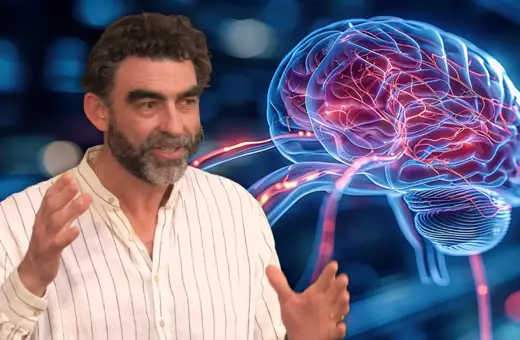Is reason no more than a powerful tool of oppression? Will post-truth turn out to be a good thing? Are emotions a better guide to life than rationality?
In this issue of IAI News, we’ll be testing the limits of reason. Each of our contributors will be arguing whether or not we it's time to abandon reason, examine its impact and go in search of new ways to understand the world.
In a time of uncertainty and doubt, many think reason alone leads to truth. But in a world where “post-truth” and “alternative facts” have taken hold, it’s no longer clear that reason is destined to put us on the right path. Nor is it clear that reason and rationality are the neutral but powerful tools they once seemed. Is the enlightenment project over? Should we be sceptical of the claims of logic and rationality and pursue intuition and emotion instead? Or would this allow blind prejudice to rule?
In Defence of Post-Truth
Steve Fuller – post-modern sociologist at Warwick
Could post-truth actually be a good thing? Leading the attack on reason, Fuller argues that truth is a redundant concept best consigned to the heap of failed philosophical projects.
Intuition vs Reason
Berit Brogaard – philosopher and author of Transient Truths
Might emotions be a better guide to life? Taking a different approach, Brogaard picks apart how we make choices, arguing that gut feelings should replace reason as our primary form of decision-making.
Reason, The Enlightenment, and Post-Truth Politics
Peter Hacker – Emeritus Oxford philosopher and Wittgenstein scholar
Is it time to revive the dream of the Enlightenment? Coming to reason’s defence, Hacker examines the consequences of post-truth, arguing that “the inevitable price for disregarding facts is yet to be paid. But the bills are starting to come in”.
What We Cannot Know
Marcus Du Sautoy – Oxford mathematician and Professor for the Public Understanding of Science
Does knowledge have limits? In this piece Du Sautoy challenges the authority of science and questions reason’s ability to answer the fundamental questions.
The Iron Cage of Reason
Véronique Mottier – Cambridge sociologist specialising in sexuality
Is reason no more than a powerful tool of oppression? Next, Mottier debunks the idea that reason is a neutral path to truth, arguing that it represents a “key pillar of male domination over women”.
Trump: The Post-Modern Nightmare
Alison Milbank - Theologian at Nottingham University
Does Trump's success reveal the dark side of post-modernism? Milbank makes the case that truth is perspectival, but that it can be just as compelling as lies.
The March of Truth
Peter Cameron - Award-winning Emeritus Professor of Mathematics
Truth and reason are being assualted from all sides - is it time we fought back? Completing the issue, Cameron argues that we need to defend truth against its detractors or we might just lose it forever.
Issue 54: The Limits of Reason
Is the enlightenment project over?

Want to continue reading?
Get unlimited access to insights from the world's leading thinkers.
Browse our subscription plans and subscribe to read more.
Already a subscriber? Log in
Dzen_o 15 March 2017
It seems as a re-post of a comment in other forum (about Philosophy of Science) can be relevant here
_________
Dear Professor @@@@
“…Heisenberg speaks very much of mathematical truth. I do not understand what he means. I know that we can define the truth according to different theories. I can not really find a place for this truth….”
Any “finding a place” for at least rational elaborating of indeed fundamental, i.e. Meta-mainstream philosophical and Meta-mainstream “usual scientific”, problem is possible only in the “The Information as Absolute” conception https://zenodo.org/record/268904#.WJnI0DhlSHv
Only in this conception is possible to define properly the necessary in the problem above Meta-notions/phenomena “Matter” and “Consciousness”, and further to differentiate them clearly; when in the mainstream these notions/phenomena are principally transcendent and so non-cognizable [non-discernable, etc., etc., etc.].
Correspondingly any discussion in framework of the mainstream turns out to be some in fact meaningless scholastic exercises, where a next member makes some principally non-provable and non-testable [since eventually relate to the transcendence above] assertion and others either make own analogous claims or attempt to prove/disprove what is non-provable/non-disprovable; or write something that has no relation to the topic, what seems as a spam – as this discussion mostly goes on.
In the conception it is rigorously proven that all/every what exists in our Universe and outside is/are only some informational patterns/systems of patterns that are elements of the absolutely fundamental, absolutely infinite, and existent always, i.e. “in absolutely infinite time interval” “Information” Set. Any Being is fundamentally a being of information.
Including systems “Matter” and “Consciousness” are some informational systems of informational patterns also; when Matter is organized and evolves by using true information [as a limited set of logical rules/ “Nature laws” and links] exclusively – that is some system of some automata; and
elements of the non-material system “Consciousness”, i.e. humans’ consciousnesses, are self-aware informational systems that can analyse the information about the external [and the internal, but here that is inessential] that she obtains when outer material objects interact with practically purely material human’s body’s sensors.
Since the informational system “consciousness” analyzes some other informational system there is nothing principally impossible in that sometimes this system decode objectively existent laws and links in other systems correctly, including in Matter.
Since Matter is the infosystem that is principally organized “by” a strict logic, it is quite natural that at decoding/describing laws and links in Matter a language “mathematics” turns out to be very adequate and just so it is widely used in science.
However the informational systems, including material systems, forms “hierarchy” of levels [e.g. – dependently on interactions’ scales], where rather different laws and links act; relevant here example – QM and classic mechanics on micro and macro scales.
In both mechanics mathematics is quite well applicable, nonetheless – applicable “non-totally”. Any formula consists implicitly of two parts – “mathematics” and “verbal physics”. The math formula F=Gm1m2/r^2 has no relation to physics till it isn’t pointed out that, say, “F” is the gravity force, “m1” and “m2” are masses, “r” is the distance between the masses.
As well as though the wave functions in QM are vectors in a Hilbert space, not every of infinitely possible in mathematics Hilbert spaces contain wave functions.
But from that above it doesn’t follow that on the deepest, utmost fundamental, level the informational system “Matter” indeed can be reduced to “mathematical system “Matter””.
However that is inessential in the “Heisenberg problem” above. This problem appeared outside the informational conception, where indeed there is the problem “how, though that seems as rather plausible/probable can material system be non- material mathematical system???”.
In the reality this problem doesn’t exist (see above), material systems are fundamentally some informational [when “mathematical” is “informational”, of course] systems, though for somebodies this fact is till now a puzzle, because of they think by unknown reasons, that any/every information can be only non-material and exist only for humans….
Cheers
Madeline Clare 3 March 2017
Intuitive gut feelings work for the positive contributions we arguably need to evolve into post-truth universes when the body/mind continuum is at peace with itself. When not, then we can look to greater destructive forces at work. So more balance through regular mind/body healing practices to keep putting the settings back to 0 each day.


















Join the conversation